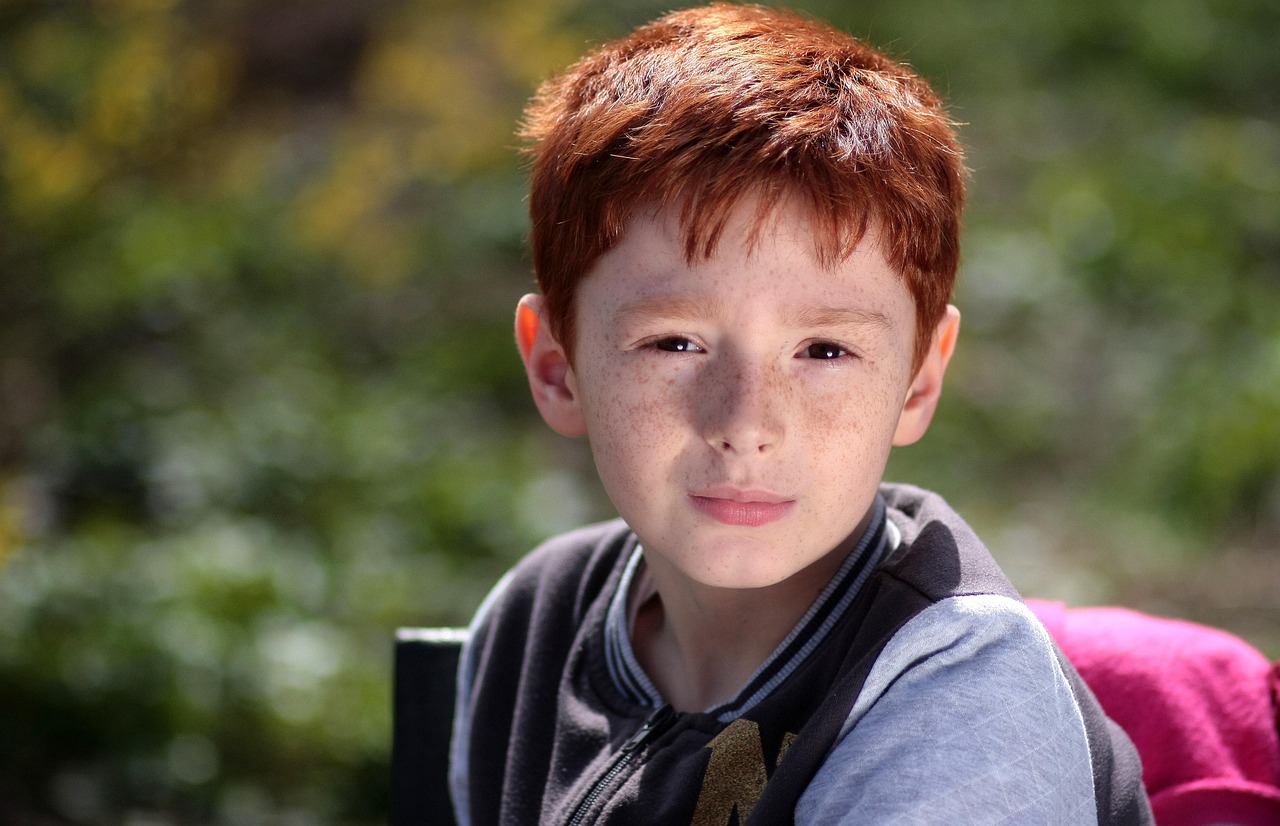Navigating the world of parenting can feel like traversing a complex maze. With countless books, articles, and opinions vying for attention, it’s easy to feel overwhelmed. Understanding different parenting styles and their potential impact on your child’s development is a crucial first step towards fostering a healthy and fulfilling relationship. This guide will explore the most common parenting styles, their characteristics, and practical tips for incorporating effective strategies into your own parenting approach.
Understanding Authoritative Parenting
Authoritative parenting is often considered the gold standard of parenting styles. It’s characterized by a balance of warmth, responsiveness, and clear expectations. Authoritative parents set rules and boundaries, but they also explain the reasons behind them and are open to discussion and negotiation.
Key Characteristics of Authoritative Parents
- High Expectations & High Support: Authoritative parents have clear expectations for their children’s behavior and achievements but also provide ample support and encouragement.
- Open Communication: They encourage open communication and actively listen to their children’s concerns and perspectives.
- Reasoning and Explanation: Instead of simply demanding obedience, they explain the reasons behind their rules and expectations.
- Warmth and Affection: Authoritative parents express love and affection openly and consistently.
- Flexibility and Understanding: They are willing to adjust their approach based on their child’s individual needs and circumstances.
Benefits of Authoritative Parenting
- Higher Self-Esteem: Children raised with authoritative parenting tend to have higher self-esteem and confidence.
- Better Academic Performance: They often perform better academically due to the emphasis on responsibility and achievement.
- Stronger Social Skills: Their ability to communicate effectively and understand others contributes to better social skills.
- Reduced Risk of Behavioral Problems: The balance of structure and support reduces the risk of behavioral problems and delinquency.
- Increased Independence: Encouragement of independent thought and action fosters a sense of self-reliance.
Practical Examples of Authoritative Parenting
Instead of saying, “You can’t go to the party because I said so,” an authoritative parent might say, “I’m concerned about you going to the party because I haven’t met the parents hosting it, and I want to make sure you’re in a safe environment. How about we talk about who will be there and how you’ll get home?”
Another example is when a child makes a mistake. An authoritative parent wouldn’t just punish them. Instead, they’d say, “I understand you made a mistake, but let’s talk about why it was wrong and what you can do differently next time.”
Exploring Authoritarian Parenting
Authoritarian parenting, also known as disciplinarian parenting, is characterized by high expectations, strict rules, and a lack of warmth and responsiveness. These parents often demand obedience without explanation and may use punishment to enforce their rules.
Key Characteristics of Authoritarian Parents
- High Expectations & Low Support: Authoritarian parents have high expectations but provide little support or warmth.
- Strict Rules and Demands: They impose strict rules and demand absolute obedience.
- Lack of Communication: Communication is often one-way, with little room for discussion or negotiation.
- Punishment-Oriented: They rely heavily on punishment to control behavior.
- Unforgiving: Authoritarian parents may be unforgiving of mistakes.
Potential Consequences of Authoritarian Parenting
- Lower Self-Esteem: Children raised in authoritarian households may experience lower self-esteem and feelings of inadequacy.
- Increased Anxiety and Depression: The constant pressure and lack of support can contribute to anxiety and depression.
- Rebellious Behavior: Children may rebel against their parents’ strict rules and expectations.
- Difficulty with Decision-Making: The lack of opportunity to make their own choices can hinder their ability to make sound decisions.
- Poor Social Skills: They may struggle to develop healthy social skills due to a lack of open communication and empathy within the family.
Practical Examples of Authoritarian Parenting
An authoritarian parent might say, “You will be home by 10 pm, no exceptions! If you’re late, you’re grounded for a month.” There’s no room for discussion or explanation.
Another example: if a child receives a bad grade, an authoritarian parent might react with anger and criticism, saying, “You’re lazy and not trying hard enough. You will study for extra hours every day until your grades improve.”
Delving into Permissive Parenting
Permissive parenting, sometimes referred to as indulgent parenting, is characterized by high warmth and responsiveness but low expectations and few rules. Permissive parents are often very loving and accepting but avoid setting boundaries or enforcing discipline.
Key Characteristics of Permissive Parents
- Low Expectations & High Support: Permissive parents have few expectations but provide ample support and affection.
- Avoidance of Conflict: They often avoid conflict and are reluctant to set boundaries.
- Overly Indulgent: They may be overly indulgent and give their children whatever they want.
- Friend-like Relationship: They often try to be their child’s friend rather than a parent.
- Lack of Consistency: They may be inconsistent with discipline and rules.
Possible Outcomes of Permissive Parenting
- Impulsivity and Lack of Self-Control: Children raised with permissive parenting may struggle with impulsivity and self-control.
- Difficulty Following Rules: They may have difficulty following rules and respecting authority.
- Poor Academic Performance: The lack of expectations and structure can contribute to poor academic performance.
- Increased Risk of Behavioral Problems: They may be more prone to behavioral problems and substance abuse.
- Entitlement: They may develop a sense of entitlement and have difficulty handling disappointment.
Practical Examples of Permissive Parenting
A permissive parent might let their child eat candy for dinner if that’s what they want, without setting any limits or encouraging them to eat healthier options.
If a child breaks a rule, a permissive parent might simply shrug it off and say, “Oh well, it’s okay. Just don’t do it again,” without any real consequences.
Understanding Uninvolved Parenting
Uninvolved parenting, also known as neglectful parenting, is characterized by low expectations, low support, and a lack of responsiveness. Uninvolved parents are often detached from their children’s lives and provide little guidance or supervision.
Key Characteristics of Uninvolved Parents
- Low Expectations & Low Support: Uninvolved parents have few expectations and provide little support or warmth.
- Detachment and Neglect: They are often detached from their children’s lives and may be neglectful.
- Lack of Supervision: They provide little supervision or guidance.
- Emotional Unavailability: They may be emotionally unavailable to their children.
- Prioritization of Own Needs: They often prioritize their own needs over their children’s.
Potential Negative Impacts of Uninvolved Parenting
- Low Self-Esteem: Children raised with uninvolved parenting may experience very low self-esteem.
- Poor Academic Performance: The lack of support and guidance can significantly impact academic performance.
- Increased Risk of Mental Health Problems: They are at a higher risk of developing mental health problems, such as depression and anxiety.
- Substance Abuse: They are also more likely to engage in substance abuse.
- Difficulty Forming Relationships: They may have difficulty forming healthy relationships due to a lack of emotional connection and support in their childhood.
Practical Examples of Uninvolved Parenting
An uninvolved parent might not know their child’s friends, teachers, or daily activities. They might not attend school events or provide assistance with homework.
Another example is neglecting a child’s basic needs, such as providing proper meals, clothing, or medical care.
Integrating Different Styles and Finding What Works
While each parenting style has its own distinct characteristics, most parents adopt a blend of different approaches based on their individual values, beliefs, and the specific needs of their children. It’s important to remember that there’s no one-size-fits-all approach to parenting.
Tips for Effective Parenting
- Be Consistent: Consistency is key to establishing clear expectations and building trust.
- Communicate Effectively: Open and honest communication is essential for fostering a strong parent-child relationship.
- Set Boundaries: Setting boundaries provides children with a sense of security and helps them learn self-control.
- Be Empathetic: Try to understand your child’s perspective and respond with empathy.
- Practice Self-Care: Taking care of your own needs is crucial for being an effective parent. You can’t pour from an empty cup!
- Adapt to Your Child’s Needs: Each child is unique, so adjust your parenting style to suit their individual needs and temperament.
- Seek Support When Needed: Don’t be afraid to seek support from family, friends, or professionals.
- Reflect on Your Approach: Regularly reflect on your parenting style and make adjustments as needed.
Conclusion
Understanding the different parenting styles and their potential impact on children is an important step in creating a nurturing and supportive environment. While authoritative parenting is often considered the most effective approach, it’s essential to find a balance that works for your family and your child’s individual needs. By incorporating elements of different styles and practicing consistent, empathetic, and communicative parenting, you can help your child thrive and develop into a well-adjusted and successful individual. Remember that parenting is a journey, not a destination, and continuous learning and adaptation are key to success.



